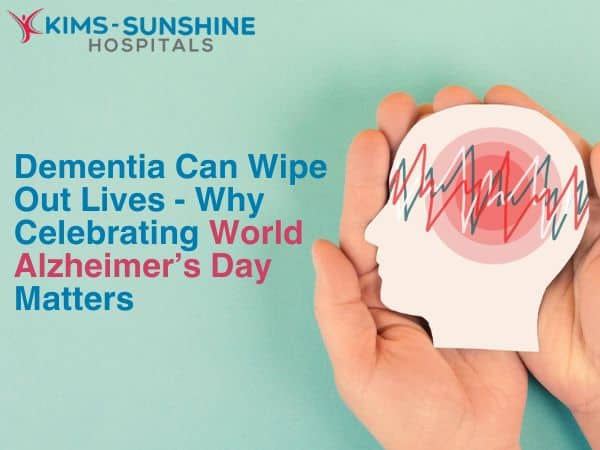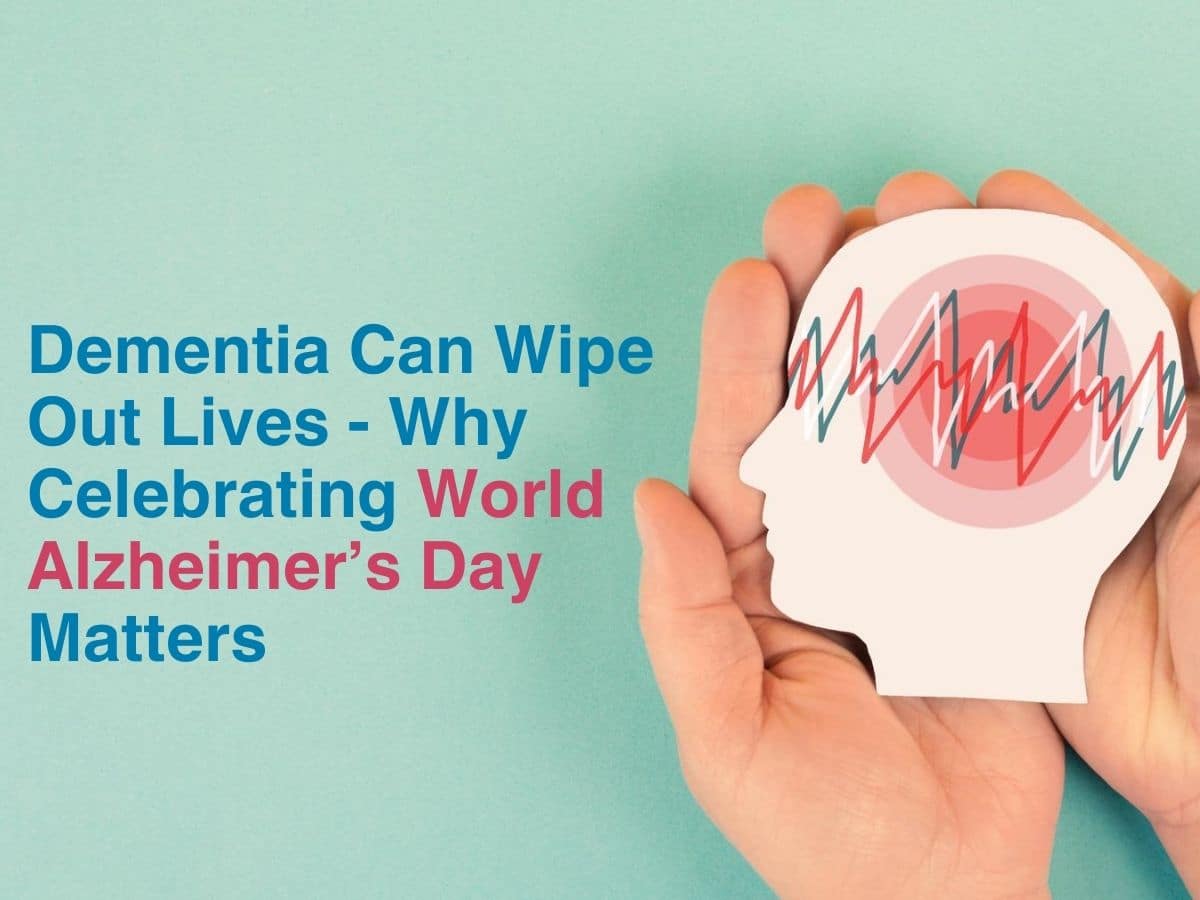
Dementia Can Wipe Out Lives – Why Celebrating World Alzheimer’s Day Matters

Extreme forgetfulness along with a handful of other related symptoms were first described in a female patient, over a hundred years ago in 1901 by a German psychiatrist called Alois Alzheimer. As more and more cases began to be found, this particular condition was renamed ‘Alzheimer’s Disease’ (AD) in his honor. Dementia itself can be of many types and is a symptom noticed in other instances too, and dementia is one of the first few symptoms to make its appearance, mostly after the age of 60. There are other individuals however, who get affected by 45 years of age, and this is called Early Onset AD. Most of us tend to forget stuff on a regular basis and we don’t think too much of it as long as our lives seem to go on without issue. But what happens when we can’t remember crucial details like our own family members, money and spending related parameters or keep track of days and feel lost? That is when most of us get worried and go to the doctor.
History and Significance of Alzheimer’s Disease
We did mention that dementia can mean a profound change or negative impact on cognitive function, behavior, memory and even normal thinking for an affected individual. However it begins, the end is the same for everyone- they forget who they are, and need some sort of assistance to lead life in their own way, which will never be normal again. The Alzheimer’s Disease International (ADI) is a global organisation, first formed in the US in 1985. 7 years later, they partnered with WHO to bring about awareness, and a couple years later, in 1994, the first World Alzheimer’s Day was celebrated on 21 September. Lots of research and hardwork and fastforward to 2009- the world’s first review on dementia on a global scale was published. This just showed all parties involved the scale of the problem- the numbers were highest in the west. The numbers however continue to grow in developing countries too, and India for example has around 7% of its population which has Alzheimer’s Disease.
The Theme for this Year
The theme is ‘Know Dementia, Know Alzheimer’s’. September is World Alzheimer’s month too, and this is hence the best time for us all to learn more about symptoms to watch out for.
- Not being able to remember and retain newly learned information.
- Having issues with concentrating and finishing tasks.
- They can’t seem to remember their favourite recipe or how to play a game they loved.
- Being all over the place about the date or time- any event based component.
- Driving style changes, which may not be related to vision issues.
- Can’t seem to remember normally used words or terms in daily conversation.
- Losing track of items.
- Sudden changes in mood.
What is the Outlook for India?
Dementia cases increase every year, and that is due to a variety of causes- genetics, lifestyle choices, idiopathic origins etc. The main concern is that people living in the rural areas don’t get access to medical care and screening needed to slow the progress of the disease. The so-called ‘caregiver burden’ is very high, and the money needed to tend to affected family members can be very astronomical for a low income family. Help and awareness needs to be provided by locally present doctors or nurses. In India, since 2020, dementia was included under the District Mental Health Programme, with a budget being allocated for the same. The state of Kerala has laid some great foundation – by investing in diagnosis, care centres and in promoting general awareness.
Conclusion
India has over 5 million individuals suffering from dementia. One of the main concerns is the loss of cognitive function, which may be solved by teaching patients to do cognitive and neural training exercises. What we do need to understand is there is no cure for Alzheimer’s or dementia, but progression may be slowed down by making some changes to lifestyle and diet. Let us be aware, and stay vigilant- for us and for our family’s sake too!
Frequently Asked Questions
When is World Alzheimer’s Day celebrated?
On 21 September every year, and this year it falls on a Saturday- it is the perfect day to talk to the older folks we know and make them aware.
How is Alzheimer’s Disease diagnosed?
By doing cognitive tests, testing CSF for protein, some imaging like MRI, CT, PET scans and asking for a detailed medical history. These are not very clear all the time either, and so the assessment of the brain post-mortem is the only really definite way to get answers. It is sadly true for almost all neurodegenerative diseases.
What are the stages of Alzheimer’s Disease?
There are 3 stages- mild, moderate and severe. They will take years to progress, and since our brain can compensate for any neuronal loss, symptoms don’t appear until much later. This is why earlier detection is one of the main areas of focus in research.
What are the treatment approaches used?
Drugs like enzyme inhibitors (cholinesterase inhibitors), using cognitive stimulation therapy, and feeling safe and well cared for can all be done.
What can I do for this initiative?
By learning about symptoms, and checking in on our older neighbours and family members, we may be able to get them help sooner rather than later.

Dr. CH. Gopal
MBBS, MD (NIMS), DM (Osmania)
Sr. Consultant Neuro Physician






